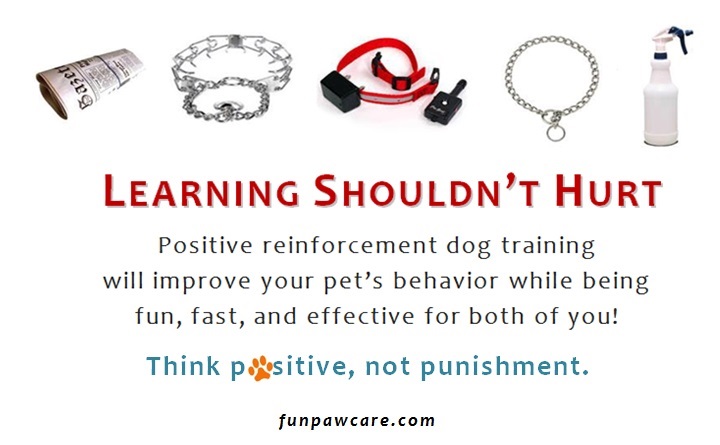
Dog Trainer Secrets
(Updated 2020)
Here are all of the dog aggression equipment, collars, harnesses and pet products that we recommend
Ever wonder what your dog trainer secretly wants you to understand if you want to be a great dog training student or client? Or what to work on with your dog trainer?
Every pet parent needs to know a few essentials in order to cohabitate with their best friend and new family member. Learning the basics of dog body language and the science of behavior are high up on the list. Dogs communicate primarily through their body language and behavior.
Therefore it is imperative that a dog lover, pet parent, and pet professional understand what a dog is saying, otherwise, there is very little communication going on. Without dialogue, it’s like having a conversation with your partner without understanding what each other are trying to say.
I spoke with several certified professional dog trainers and behaviorists and pooled together some of the most frustrating and common myths and dog basics that they wish pet parents would be aware of. So let’s have a go at it, shall we!
14 Things Your Dog, Dog Trainer, and Behaviorist Wish You Knew
- Dog training, and especially behavior modification is a process, not an event. Dog training and behavior modification take time! Dog training is the only discipline where one is teaching two different species simultaneously, both beginners, how to communicate. Each unique individual is different and the time varies based on a number of factors including but not limited to: age, how ingrained the behavior(s) is, mental health, physical health, cognition, motivation, breed, circumstances, environment, pet parents commitment, the financial situation of parents, etc.
How Long Does It Take To Train My Dog?
If only I had a dollar for every time I was asked how long will it take to train my dog. Even more impossible to answer is when that question is asked before I have ever had the opportunity to work with the dog or family!
Regardless, there is no answer to how long. Just as there is no answer to how long does it take someone to learn how to learn Japanese or play guitar? Everyone is different and there are many variables at play (cognition, skill, coordination, comprehension, motivation, dedication, resources, time, etc.)
It may be easier to provide a time frame for simple tricks or obedience skills such as sit, down, stay, roll over, bow, paw, back up, rest, leave it, drop it, take it, etc. but when it comes to generalizing obedience and behavior modification (BM), desensitization and counterconditioning (D/CC), all bets are off, and it is imperative for the pet parent to be fundamentally aware of what is ailing your pet and the laws of learning.
Behavior modification is not going to work as well if a pet parent is checked out and expects a behaviorist to do all of the work and have a “fixed” dog, parents need to participate in the dog training process and be aware of what is going on. Otherwise, they might sabotage your dog’s training and behavior protocols.
Dog training and behavior modification is a process and does not end when a trainer or behaviorist leaves your home. Your dog is learning, whether we like it or not, 24/7. The quicker this is understood the better your relationship will be with your puppy.
Not only that, but it is unethical for any certified trainer or behaviorist to tell you how long training will take.
- Seek out a specialist. Reality television shows should be ignored. Television programs are productions, existing only to make money and collect viewership based on their business model of advertising for eyeballs, addicted to fear-mongering, and alarmist propaganda.
Most shows are contrived reality shows that do not provide evidence-based, up-to-date information, educated, sound or humane advice. In other words, if you listen to Cesar Millan for dog training or behavior advice you might as well listen to Dr. Phil for your medical advice, the Kardashians for your dating advice, and Jerry Springer for your world social news. Just don’t do it. Your dog will thank you later.
Every dog and family needs training otherwise known as coaching, teaching, learning, guidance, and help from a qualified certified dog professional. Dog training is the unregulated, wild west – caveat emptor!
- Enrichment and socialization are ongoing and vital for a healthy well behaved pet. Imagine never leaving your home or a few block radius and rarely meeting new people or experiencing the multitudes of what life and mother earth has to offer? You would go insane! Yes, many behavior problems stem from a pet’s basic needs not being met. Enrichment, socialization, dog toys, healthy dog food, veterinarian checkups, dog training, shelter, love, care, bonding, clean water are all basic needs of a dog.
- Your dog does not “know better”. Your dog is NOT obstreperous and peeing on your new couch or rug to spite you or because he is obstinate or lazy. Dogs need to be taught where to go potty. It is not your dog’s fault. See our ultimate puppy potty training guide for help.
- Adopt don’t shop. Over 25% of dogs in shelters are purebred dogs and puppies. Millions of adoptable family pets needlessly die every year. Don’t worry, there are no more behavior problems that come from an adoptable dog than a dog bought from a breeder.
- Dog training and behavior is a science and requires practice and good dog training mechanics. Every family needs dog training as much as they need a veterinarian. Skimping out on either is abusive and doesn’t meet your dog’s basic needs. You wouldn’t cut back on food or water for your dog, so don’t skimp out on their education and behavior. Ethology, nutrition, and medicine are sciences. In fact, more dogs are killed for poor behavior than any other reason! Hence the primary reason I became a dog trainer and behaviorist.
Just as you wouldn’t try to repair your broken arm from watching a reality TV show or by attempting to fix it yourself, you shouldn’t attempt to fix your dog’s behavior from a TV show of from what you read on the internet or hear from your dog-loving neighbor. Call a certified dog behavior consultant (CDBC) or if you need a psychopharmacologist make sure you first speak to a dog trainer and behaviorist to recommend a board-certified veterinarian behaviorist.
- Dogs are not acting dominant towards you. In animal behavior, dominance is described as “a relationship between individuals that is established through force, aggression, and submission in order to establish priority access to a preferred resource.” Who holds the resources in the family? Who decides if your dog lives or dies? Who makes the money? You.
It is a moot point; your dog is not trying to dominate you or take over the world, nor should you dominate them. This includes why you should never practice dominance theory alpha roles, flooding, and any other abusive practices. If you are having problems with dog aggression, please see our dog aggression guide or call a certified dog behaviorist.
- Your dog is not a pack animal. You are a family, not a pack. You don’t need to be a pack leader. Being a pet parent as you are with any family member is the correct family dynamic and structure. Misguided and outdated perceptions drawn upon from captive wolves pervade the uninformed. On this note, your dog is also not trying to be your Alpha, Beta, Omega, or any other letter of the Greek alphabet. We treat pets like any other loving family member.
The illogical Alpha dog comparison is drawn from studies done on captive wolves by David Mech, and even Mech, the preeminent scientist who introduced the term “Alpha” wolf has denounced the support of the outdated Alpha pack notion decades ago. If the leading scientist who first coined the term “Alpha” status for wolves has stopped using this term decades ago, why is it still being used to describe dogs? Wolves are not considered Alphas any longer by contemporary scientists; instead, they are considered the breeding pair or more simply, the mother and father, no different than our family structure.
- There is NEVER a need for a choke chain, shock collar, or pronged collar. Not in the military, not in the police, not for service dog training and not with a family dog. It is more outdated than smoking inside airplanes. It is not only highly unethical but also inhumane and not as effective as fear-free positive reinforcement dog training. Don’t let the marketing, advertising, and euphemistic names (tickle, stimulus, vibrating collar) fool you. They were ALL designed to inflict pain and only work by increasing the amount of pain and discomfort.
- Your dog is not revengeful or acting a certain way to spite you. Fluffy does not rip up your couch or new Jimmy Choo shoes because your dog was holding a grudge. You have to teach your dog good habits and behaviors with appropriate chew toys, tug toys, and all other dog toys. Otherwise, your shoes and couch are the same texture, materials, and plushness as their toys.
- Chuck your dog’s food bowl in the ga’bage! Food bowls are the lazy human’s product to ensure a pet that can care less about working for anything. Bowls do more harm than good, chuck it, and look at these alternatives for a dog’s food bowl. And make sure you know what are dangerous dog foods!
– Keep your dogs out of the kitchen. Allowing dogs in the kitchen is often dangerous medically and causes a number of behavioral problems. There are too many potential hazards from eating something harmful to self-rewarding inappropriate behavior. Simply put, the kitchen is not a place for your pooch.
- Don’t allow a dog to self-reward with inappropriate behaviors. Around 2/3rds of behavior change comes from the antecedent arrangement, gasp! In fact, the very definition of applied behavior analysis is the process of solving practical behavior problems by changing the environment. Don’t be upset when a behaviorist first comes over and works minimally or at all with your dog and instead focuses on your learning and the environment.
A dog that is rewarded covertly or overtly (self-rewarding, environmental-rewarding, or from externalities) strengthens that behavior by means of a very strong intermittent schedule of reinforcement. A variable reinforcement schedule makes it much more difficult to change inappropriate behavior. It goes without saying, the more a dog’s behavior is practiced and rewarded the more difficult it will be to extinguish and change that behavior. The strength of a variable reinforcement schedule may be seen when people get addicted to playing the slot machines in Vegas. Jackpot!
- Microchip your pet. If you ever want a chance at seeing your dog again when not if, they run away, you drop the leash, an accident or emergency happens – and accidents do happen, folks- then get your dog microchipped. More dogs are stolen in Los Angeles when left tied up outside of a store or left in a backyard than bicycles! If you wouldn’t leave your 3-year-old child unattended, don’t leave your dog alone. More importantly, keep your microchip information up-to-date, or your chances of finding your pup are slimmer than a MacBook Air.
Lastly, as a human animal, remember to keep an open mind and be coachable. What does that mean? Try on what your dog trainer or behaviorist is suggesting and see how it fits. After all, why pay a specialist to help you and then not listen or follow instructions and advice. Your trainer is there to help you, your dog, and your family be happy.
Here are all of the dog aggression equipment, collars, harnesses and pet products that we recommend
Love Fun Paw Care and want to go steady?
Subscribe to our blog today and sign up for our bi-monthly newsletter.



Thanks for those tips
It really takes a lot of patience! I think training from a professional is so important. Nice tips!
It sure does! Thanks for your comment. Russ
I really enjoyed this article. It is highly informative. Bravo!
Thanks Josh
This is super helpful! Thanks!
Thanks Rachel! I’m glad you liked it.
Training from a professional is so very vital, Great post thanks for driving home the science behind understanding your dog better never really understood how much that really plays a part.
Thanks JB. I’m glad you liked it!
Do you also have articles on dog training like dog baring, dog biting and other dog training? Actually I am training my dog and I stumbled on your site and I think it can help me in training my dog.
Yes. Please see this article https://www.funpawcare.com/dog-behavior/dog-aggression/
HI, very interesting article. I am training my dog these days. Do you have some thing on dog barking?
Hi Ava, Yes, you can find it here https://www.funpawcare.com/dog-behavior/stop-dog-barking/
LaurenAdams
Hi Lauren,
Thank you for your
comment. Behavior is always the study of one and context specific. When it
comes to heterospecific animal behavior (dog-human) a dog is not trying to
dominate the resource holder and the very family member that decides whether an
animal lives or dies. In most cases, pawing at parent may be simply a behavior soliciting
attention or contact. Walking in front of, behind, next to, or on the side of
someone is simply a dogs/persons preference and has NO relevance to dominance.
It is sad because most reality TV shows and myths on the internet would have
you believe that a dog pawing or walking in front is tragic and/pr a dominant
behavior. Nothing could be further from the truth. A family must simply teach a
dog what behaviors they would like from them. This is accomplished through
positive reinforcing training, not subordinate, dominant paradigms. Dominance
theory has been debunked for many, many years. Someone should let Nat Geo in on
this so they don’t end up hurting more animals then they already have. Thanks
so much for reading and commenting! Russ
I think that the paragraph you wrote about a dog not trying to dominate you is very important. My dad thinks that their dog is trying to dominate the family by walking in front of them or placing his paw on their foot. I’m not sure what that even means. What are your thoughts on that kind of behavior from a dog?
KentClark1 Hi Kent,
Thanks for writing. Yes, often time’s people forget that
behavior is a science, just as is medicine. I agree there is an art to everything in life. A solid and sound foundation in the science
of behavior and in the laws of learning will help any individual succeed in utilizing force
free training choices in their practice and educational pursuits with both
animals at the end of the leash.
Thanks again, Russ 🙂
I love that you referred to dog training as a science. Sometimes, it takes a lot of patience. However, there is an art and a science to it. I think everyone should study the process before choosing certain methods of training. http://www.ivanhoevet.com.au
@thrivebig Thank you! 🙂